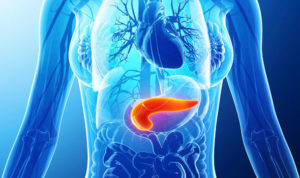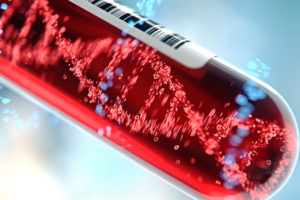Pancreatic Cancer Plasma & Serum Samples
Bay Biosciences provides high quality, clinical grade, biopsy tissue samples, FFPE tissue blocks with matched cryogenically preserved sera (serum), plasma, peripheral blood mononuclear cells (PBMC) biofluid samples from patients diagnosed with pancreatic cancer.
The sera (serum), plasma and PBMC biofluid specimens are processed from pancreatic cancer patient’s peripheral whole-blood using customized collection and processing protocols.
Biopsy tissue and matched biofluid samples are collected from unique patients diagnosed with pancreatic cancer and are provided to a valued pharmaceutical customer for research, diagnostics, discovery and drug development.
Detailed clinical data, patient’s history, complete blood count (CBC), serology, MRI, biopsy tissue findings, histopathology information, elevated biomarker levels, genetic and metabolic information associated with pancreatic cancer specimens is provided to a valued customer for research, development and drug discovery.
The pancreatic cancer, sera (serum), plasma and peripheral blood mononuclear cells (PBMC) biofluids are processed from patients peripheral whole-blood using customized collection and processing protocols.

Pancreatic Cancer Overview
Pancreatic cancer is a type of cancer that starts in the pancreas. Cancer starts when cells in the body begin to grow out of control. Pancreatic adenocarcinoma is the most common type of pancreatic cancer. Pancreatic neuroendocrine tumors (NETs) are a less common type.
Pancreas, which is a vital endocrine organ located behind the stomach, it is about 6 inches long that is shaped like a thin pear lying on its side. The pancreas lies between the stomach and the spine. The pancreas plays an essential role in digestion by producing enzymes that the body needs to digest fats, carbohydrates, and proteins.
Pancreatic Cancer Key Factors
- Pancreatic cancer is a disease in which malignant (cancer) cells form in the tissues of the pancreas.
- Smoking and health history can affect the risk of pancreatic cancer.
- Signs and symptoms of pancreatic cancer include jaundice, pain, and weight loss.
- Pancreatic cancer is difficult to diagnose early.
- Tests that examine the pancreas are used to diagnose and stage pancreatic cancer.
Stages of Pancreatic Cancer
Diagnostics tests and procedures to stage pancreatic cancer are usually done at the same time as diagnosis.
Following are the stages of Pancreatic cancer:
- Stage-0 (Carcinoma in Situ)
- Stage-I
- Stage-II
- Stage-III
- Stage-IV
Following groups are used to plan treatment for pancreatic cancer: - Pancreatic cancer where tumor can be removed surgically
- Borderline resectable pancreatic cancer
- Locally advanced pancreatic cancer
- Metastatic pancreatic cancer
- Recurrent pancreatic cancer
Signs and Symptoms of pancreatic cancer
Pancreatic cancer may not cause any signs or symptoms in its early stages. Signs and symptoms often appear as the tumor grows and causes changes in the body. Other health conditions can cause the same symptoms as pancreatic cancer.
Following are the common signs and symptoms of pancreatic cancer:
- Bloating
- Blood clots
- Constipation
-
Dark colored urine
-
Fatty stools (steatorrhea) that are light colored, bulky and float in the toilet
-
Fever and shivering
- Gas
- Indigestion
- Itching
-
Feeling full after a small meal
- Loss of appetite
- Pain in the upper abdomen or upper back
- Swelling in the legs
- Unexplained weight loss
- Vomiting
- yellowing of the skin and the whites of the eyes (called
jaundice)
Causes of Pancreatic Cancer
The cause of pancreatic cancer is unknown. This type of cancer occurs when abnormal cells begin to grow within the pancreas and form tumors.
Normally, healthy cells grow and die in moderate numbers. In the case of cancer, there is an increased amount of abnormal cell production, and these cells eventually take over the healthy cells.
Researchers don’t know what causes the changes in the cells, they do know some common factors that may increase a person’s risk for developing this type of cancer.
The two most significant risk factors are inherited mutations in gene and acquired gene mutations. Genes control the way cells acts, so changes to those genes may lead to cancer.
A survival rate is a percentage of how many people with the same type and stage of a cancer are still alive after a specific amount of time. This number doesn’t indicate how long people may live. Instead, it helps gauge how successful treatment for a cancer might be.
Survival Rate of Pancreatic Cancer
Many survival rates are given as a five-year percentage. It’s important to keep in mind that survival rates are not definitive. It depends on the spread of the disease and each individual case.
The five-year survival rate for localized pancreatic cancer is 34 percent. Localized pancreatic cancer is stages 0, 1, and 2.
The five-year survival rate for regional pancreatic cancer that has spread to nearby structures or lymph nodes is 12 percent. Stages 2B and 3 fall into this category.
Distant pancreatic cancer, or stage 4 cancer that has spread to other sites like the lungs, liver, or bones, has a 3 percent survival rate.

Bay Biosciences is a global leader in providing researchers with high quality, clinical grade, fully characterized human tissue samples, bio-specimens and human bio-fluid collections.
We have samples available are cancer (tumor) tissue, cancer serum, cancer plasma cancer PBMC and human tissue samples from most other therapeutic areas and diseases.
Our company Bay Biosciences maintains and manages its own bio-repository, human tissue bank (biobank) consisting of thousands of diseased samples (specimens) and from normal healthy donors available in all formats and types.
Our biobank procures and stores fully consented, deidentified and institutional review boards (IRB) approved human tissue samples and matched controls.
All our human tissue collections, human specimens and human bio-fluids are provided with detailed samples associated patient’s clinical data.
This critical patient’s clinical data includes information relating to their past and current disease, treatment history, lifestyle choices, biomarkers and genetic information.
Patient’s data is extremely valuable for researchers and is used to help identify new effective treatments (drug discovery & development) in oncology, other therapeutic areas and diseases.
This clinical information is critical to demonstrate their impact, monitor the safety of medicines, testing & diagnostics, and generate new knowledge about the causes of disease and illness.
Bay Biosciences banks wide variety of human tissue samples and biological samples including cryogenically preserved at – 80°C.
Including fresh frozen tissue samples, tumor tissue samples, FFPE’s, tissue slides, with matching human bio-fluids, whole blood and blood derived products such as serum, plasma and PBMC’s.
Bay Biosciences is a global leader in collecting and providing human tissue samples according to the researchers specified requirements and customized, tailor-made collection protocols.
Please contact us anytime to discuss your special research projects and customized human tissue sample requirements.
Bay Biosciences provides human tissue samples (human specimens) from diseased and normal healthy donors which includes:
- Peripheral whole-blood,
- Amniotic fluid
- Bronchoalveolar lavage fluid (BAL)
- Sputum
- Pleural effusion
- Cerebrospinal fluid (CSF)
- Serum (sera)
- Plasma
- Peripheral blood mononuclear cells (PBMC’s)
- Saliva
- Buffy coat
- Urine
- Stool samples
- Aqueous humor
- Vitreous humor
- Kidney stones (renal calculi)
- Other bodily fluids from most diseases including cancer.
We can also procure most human bio-specimens and can-do special collections and requests of human samples that are difficult to find. All our human tissue samples are procured through IRB approved clinical protocols and procedures.
In addition to the standard processing protocols Bay Biosciences can also provide human plasma, serum, PBMC bio-fluid samples using custom processing protocols, you can buy donor specific sample collections in higher volumes and specified sample aliquots from us.
Bay Biosciences also provides human samples from normal healthy donors, volunteers, for controls and clinical research, contact us Now.
日本のお客様は、ベイバイオサイエンスジャパンBay Biosciences Japanまたはhttp://baybiosciences-jp.com/contact/までご連絡ください。


